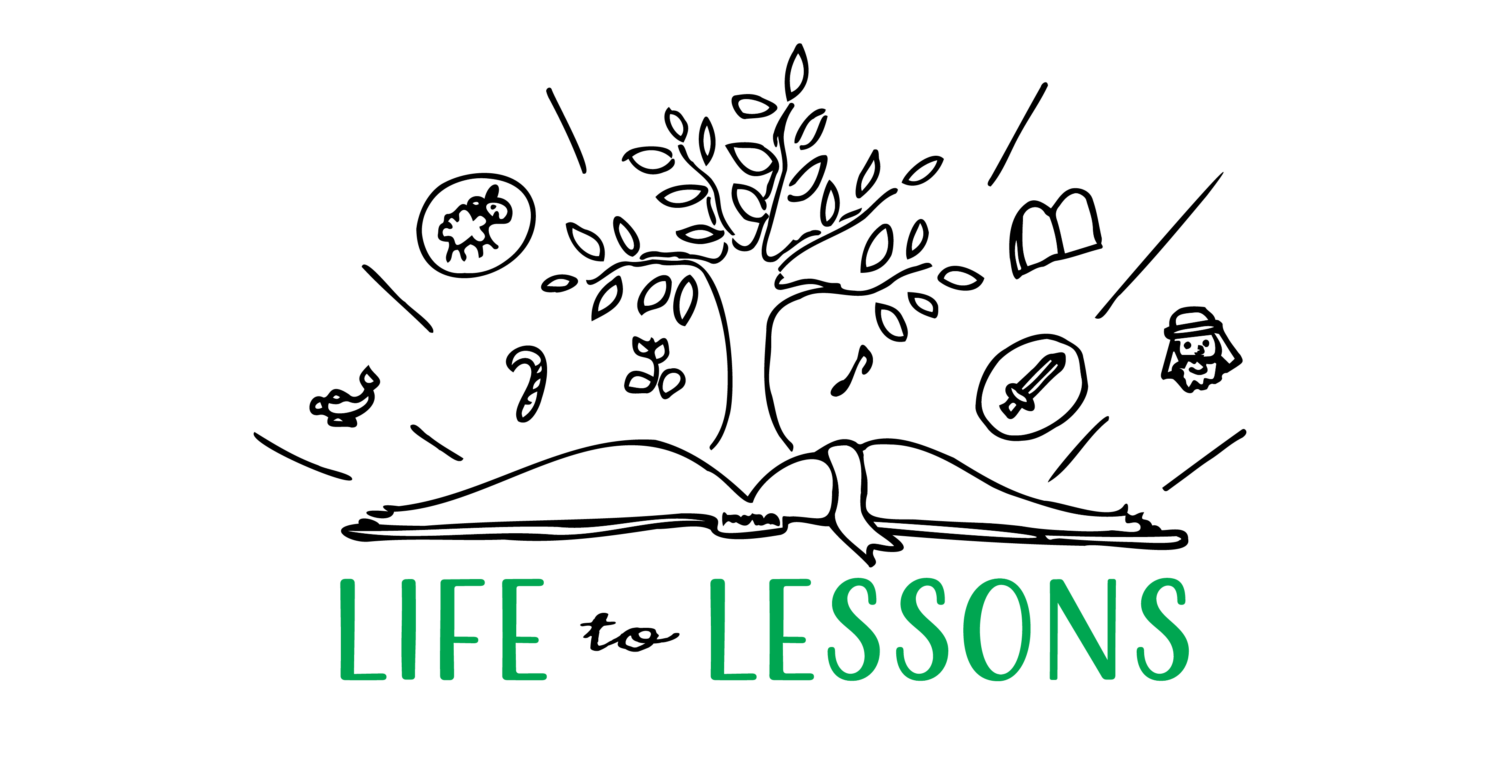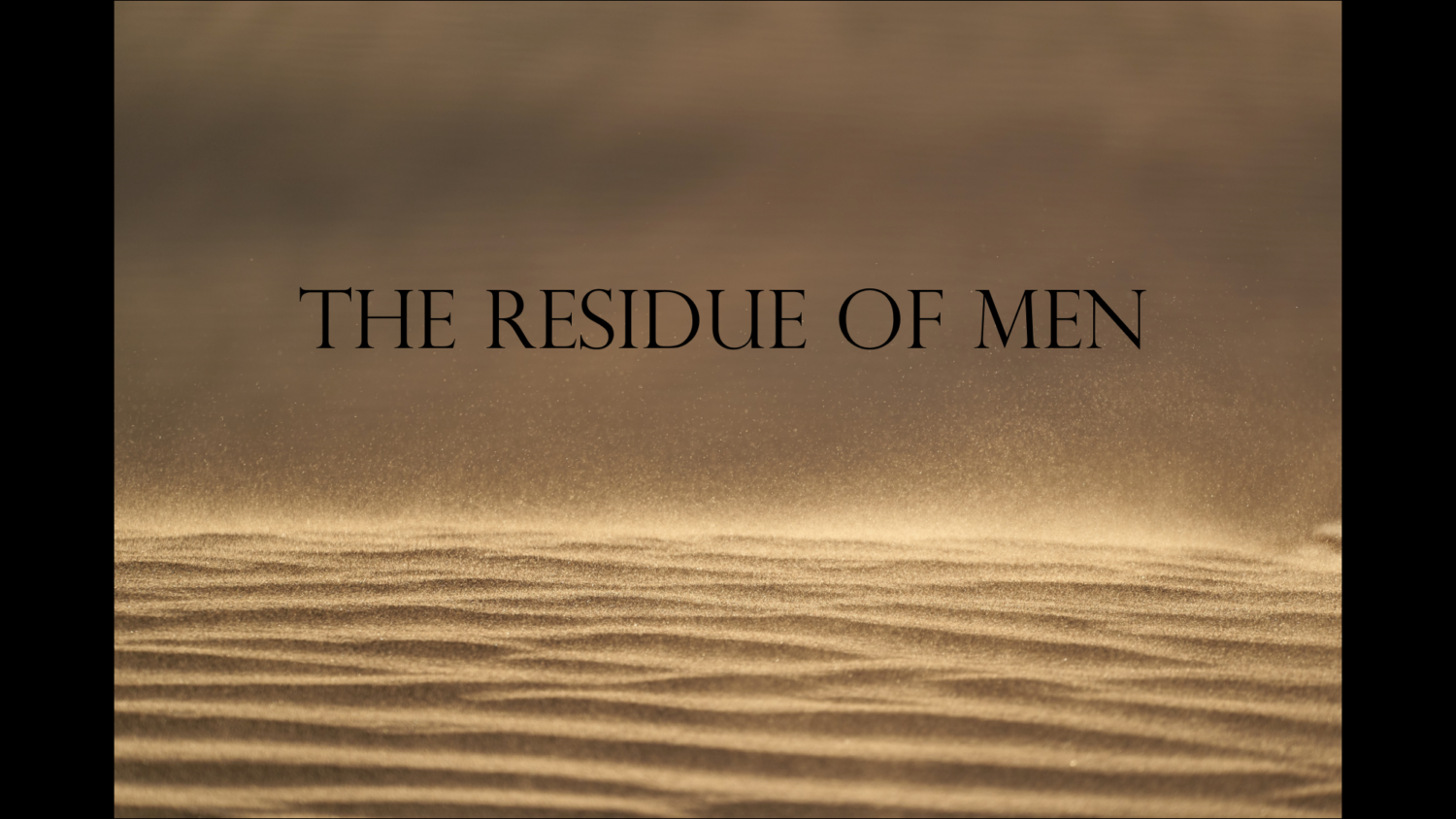Digging Deeper: The Flood in the New Testament
Author: Mr. Kenneth Frank | Faculty in Theology, Living Education
Estimated reading time: 8 min., 40 sec.
Did you know that Jesus referenced the great flood of Noah’s day to describe the world’s unrepentant state before His Second Coming?
There are vital lessons for our day from Jesus’ relating this story. Skeptics today question whether this flood ever occurred, stating it was legendary or merely symbolic. Others may accept its reality but challenge whether the flood was universal or only local. There is a direct and conclusive way for Christians to verify the details of this Genesis account: by closely reading the New Testament. This Digging Deeper delves into the New Testament’s reference to this dramatic story to motivate humanity to heed Jesus’ warnings about world conditions before His return.
The first passage that mentions the flood in NT
The great flood of Noah’s day (sometimes referred to as the “Genesis Flood” or “Noah’s Flood”) is mentioned in six New Testament passages. The first is: “But of that day and hour knoweth no man, no, not the angels of heaven, but my Father only. But as the days of Noe were, so shall also the coming of the Son of man be. For as in the days that were before the flood they were eating and drinking, marrying and giving in marriage, until the day that Noe entered into the ark, And knew not until the flood came, and took them all away; so shall also the coming of the Son of man be” (Matthew 24:36-39 KJV throughout).
Notice that Jesus affirms that such a flood actually occurred and that it took them all away. This story was quite familiar to His listeners since He did not have to recount the entire drama. Vine’s Complete Expository Dictionary of New Testament Words states that the Greek word translated flood is: “kataklusmos (G2627), ‘a deluge’ (Eng., ‘cataclysm’), akin to katakluzo, ‘to inundate,’ 2 Peter 3:6, is used of the ‘flood’ in Noah’s time, Matthew 24:38, 39; Luke 17:27; 2 Peter 2:5” (e-Sword 13.0). Noah’s Flood was a cataclysmic deluge of the entire planet. Many Jews of the time thought the flood prefigured the day of judgment to come.
The King James Study Bible comments on these verses: ” … we are given a comparison to the days of Noe (Noah and the Flood), which illustrate and prefigure the condition of humanity at the time of Christ’s return. The last generation, like the one of Noah’s day, is pleasure-oriented and self-gratifying by eating and drinking. The reference to marrying and giving in marriage may refer to carrying on the normal course of life without heeding the impending judgment” (Tecarta Bible App).
As in Noah’s day, people will be unprepared for the destruction to come due to neglecting God’s warnings. R.C.H. Lenski in his Commentary on the New Testament wrote: “In the days preceding the deluge men were wholly unconcerned (ἦσαν with an indefinite subject). They spent the 120 years which God had fixed as the limit of his grace ‘eating (πρώγειν, “to munch,” audible eating, used in John 6:54–58) and drinking, marrying and giving in marriage’ as though no judgment were impending. These are neutral actions that are not sinful in themselves; but they obtain a sinister significance when the total disregard of God’s warnings is observed which underlies this conduct. These men should have repented in sackcloth and in ashes” (Bible Analyzer 5.4.1.22).
The second passage is:
“And as it was in the days of Noe, so shall it be also in the days of the Son of man. They did eat, they drank, they married wives, they were given in marriage, until the day that Noe entered into the ark, and the flood came, and destroyed them all” (Luke 7:26-27). When He said it “destroyed them all,” Jesus considered it a universal flood since He used it as a historical precedent for massive destruction of the world’s population at His return resulting from open sin. The NIV Cultural Backgrounds Study Bible notes: “Ancient Jewish sources depicted Noah’s generation (Ge 6:11–13) and Sodom (Ge 18:20; 19:4–9), sometimes together, as the epitome of evil. The point here is that they thought only of life as usual, and sudden judgment took them by surprise (Ge 7:21–23; 19:24–25)” (Tecarta Bible App).
Sudden destruction will catch most people unprepared at Jesus’ return. R.C.H. Lenski in his Commentary on the New Testament described the people of Noah’s day: “They disregarded absolutely all warning and lived on as though the warnings meant nothing. The four verbs which are without connectives are dramatic, all are imperfect tenses to express customary actions. It is a masterly description of that blind, secure, unbelieving, ungodly generation of Noah’s day, whose successors are with us now and shall fill the world when the Son of man comes” (Bible Analyzer 5.4.1.22).
The third passage is:
“By faith Noah, being warned of God of things not seen as yet, moved with fear, prepared an ark to the saving of his house; by the which he condemned the world, and became heir of the righteousness which is by faith” (Hebrews 11:7). The KJV Study Bible notes: “Noah was asked by God to do in faith things that were incongruous with his former experience. He had never seen rain (Genesis 2:5), and yet God told him to build an ark because of a coming flood (Genesis 6:13–17)” (Tecarta Bible App). The NKJ Study Bible adds further: “Noah had never seen (v. 1) the flood God revealed to him. Yet he believed God in spite of this and heeded His warnings. His faith not only saved him from the deluge but also from God’s judgment, for He became an heir of righteousness” (Ibid.).
The fourth passage is:
“Which sometime were disobedient, when once the longsuffering of God waited in the days of Noah, while the ark was a preparing, wherein few, that is, eight souls were saved by water. The like figure whereunto even baptism doth also now save us (not the putting away of the filth of the flesh, but the answer of a good conscience toward God,) by the resurrection of Jesus Christ” (1 Peter 3:20-21). The Holman KJV Study Bible explains: “Noah and his family were saved by water, or brought safely through the floodwaters, whereas the wicked were destroyed (Genesis 7:22-23). Baptism in the NT corresponds to this OT event in that both involve breaks from past lives and a fresh start and entrance into new life” (Tecarta Bible App).
The fifth passage is:
“And spared not the old world, but saved Noah the eighth person, a preacher of righteousness, bringing in the flood upon the world of the ungodly” (2 Peter 2:5). The NKJ Study Bible comments: “Noah is called a preacher of righteousness because his righteous life put to shame the immoral lives of his neighbors. Noah’s building of the ark would certainly have given him the opportunity to explain the coming judgment and to invite people to repent and believe in God. But his entreaties fell on deaf ears, just as the truth of Christ’s atonement fell on the deaf ears of the false teachers of Peter’s day. Such indifference and unbelief brought the ungodly of Noah’s world to certain destruction” (Tecarta Bible App).
The sixth and final passage is:
“For this they willingly are ignorant of, that by the word of God the heavens were of old, and the earth standing out of the water and in the water: Whereby the world that then was, being overflowed with water, perished” (2 Peter 3:6). In his Days of Praise article for February 5, 2018, John Morris wrote, “Peter uses extraordinary language. The word ‘overflowed’ in today’s verse translates the mighty Greek word katakluzo, from which we get our word ‘cataclysm’ …In the Greek New Testament, this word is only used to refer to Noah’s Flood (see Matthew 24:38-39; Luke 17:27; 2 Peter 2:5) …” This is the word described earlier in this article. The NKJ Study Bible additionally notes: “The scoffing teachers would choose to overlook events such as creation and the Flood. The people of Noah’s time did not believe in Noah’s warning because they had never experienced a flood.” (Tecarta Bible App).
To summarize the importance of the words of Jesus and the New Testament apostles, Henry Morris in his Days of Praise article for January 30, 2018 wrote: “This is what Jesus said, and what He believed, and therefore, those who are truly His disciples must also believe this. The destructive effects of the Flood can still be seen today not only in the biblical record, but also in the abundant evidences of cataclysmic destruction in the rocks and fossil graveyards all over the world. To refuse this evidence, as do many modern intellectuals, can only be because they ‘willingly are ignorant,’ as Peter said in referring to this testimony (2 Peter 3:5).”
Christians need only go back to the New Testament’s affirmation in the first century that the flood was real and globally destructive. Contrary to what some claim, there is ample biblical and geological evidence of a global flood. Faith in the words of Christ Who inspired the New Testament settles the matter satisfactorily for those who claim to be His disciples. Jesus referenced the flood account to warn people not to avoid His call for repentance as people did in the time of Noah. Believers who heed God’s word and respond like Noah will find ” … grace in the eyes of the LORD” (Genesis 6:8).

Kenneth Frank was born and raised in New Jersey, USA, and attended Ambassador College, graduating in 1973. He served in the Canadian ministry from 1973-1999, after which he returned to the USA to pastor churches in Maryland, Virginia, and North Carolina for 15 years. Having earned a BA degree from Ambassador College he later earned a MA degree from Grand Canyon University before being assigned to the Charlotte office to teach at Living University, now Living Education. Currently, he teaches the Survey of the Bible course to the on-campus students and writes the Digging Deeper column for our online Bible study program. He is married, has four children, and seven grandchildren.









